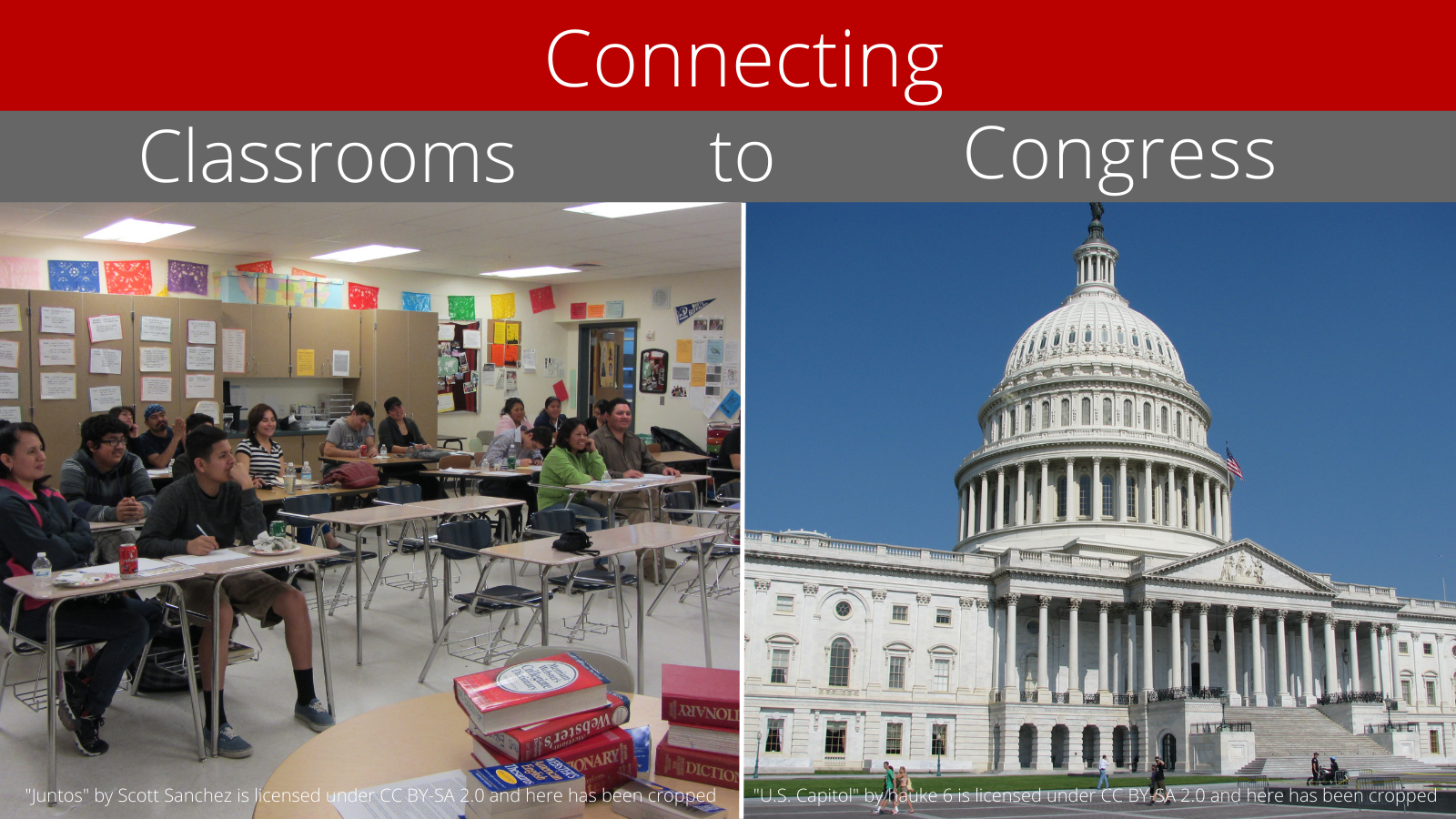About Connecting Classrooms to Congress
Connecting Classrooms to Congress is a new collaboration between political scientists and faculty at IDEA, Brown University, and the University of California Riverside. The project endeavors to develop and test a web-based platform that enables high school students to study a pressing political issue and then discuss that issue with their Member of Congress in a Deliberative Town Hall. The team is also developing and testing a social studies curriculum module, “Connecting Classrooms to Congress,” that will give high school seniors an opportunity to study a specific pressing public policy issue and then meet with their Member of Congress to discuss it in an online Deliberative Town Hall (DTH). The students then reflect on that event through analytical writing and continue the conversation within their classes and the broader community.
Structure
The three-week-long module will ask student participants to first research the policy issue at hand. In doing so, they will gain the necessary information of not just the issue, but the different perspectives surrounding it as well. Then, they will judge the credibility of the information they find to build a cohesive and fact-based perspective; they will discuss their perspective with their classmates in order to further strengthen their comprehension. Later, students will use an online platform called Prytaneum to discuss the policy issue with their elected representative in Congress.
After engaging in this forum, students will also watch a recorded DTH where the same issue was discussed with a Member of Congress from a different political party than their own. They will then partake in a writing exercise that can take several forms: a policy memo, a persuasive essay, a collaborative writing exercise or a social media post designed to raise awareness among the broader public. Through this structure, it is hoped that students’ academic skills – research, higher reasoning, and deliberation – will be furthered while simultaneously increasing informed and substantive dialogue between America’s youth and their Members of Congress.
Potential Benefits
This project builds on over a decade of research by Dr. Michael Neblo, the Director of IDEA, and his collaborator, Dr. Kevin Esterling, the Director of University of California Riverside’s Laboratory for Technology, Communication and Democracy (Tech-CD Lab). Years of research have come to a fascinating conclusion: the constituents who accepted invitations to participate in DTHs were not just those who were already the most politically active, but were in fact more representative of all eligible voters than those who actually voted. DTHs therefore offer new opportunities for those turned off by traditional partisan politics to once again involve themselves in the political process. Further, the deliberative structure of these DTHs – wherein participants are encouraged to listen to and politely engage with diverse perspectives – provide a potentially effective way for new members of the political system – such as newly registered voters – to become involved.
Beyond this, directly giving students the opportunity to be involved in the political system allows new voices within the community to be heard and included on equal terms – something that is generally far from the case currently. CC2C allows students to develop the habits of inclusive, respectful, and cooperative civic engagement within their own communities.
Funding
Connecting Classrooms to Congress is funded by the Institute of Education Sciences (IES), one of America’s premier sources for rigorous and independent education-related research. Through its generous award of $2,000,000, the project will be able to expand deliberative democratic principles to high school students in three states: California, Illinois, and Florida. More information on the IES’ funding, as well as the specifics of this project, may be found here.

